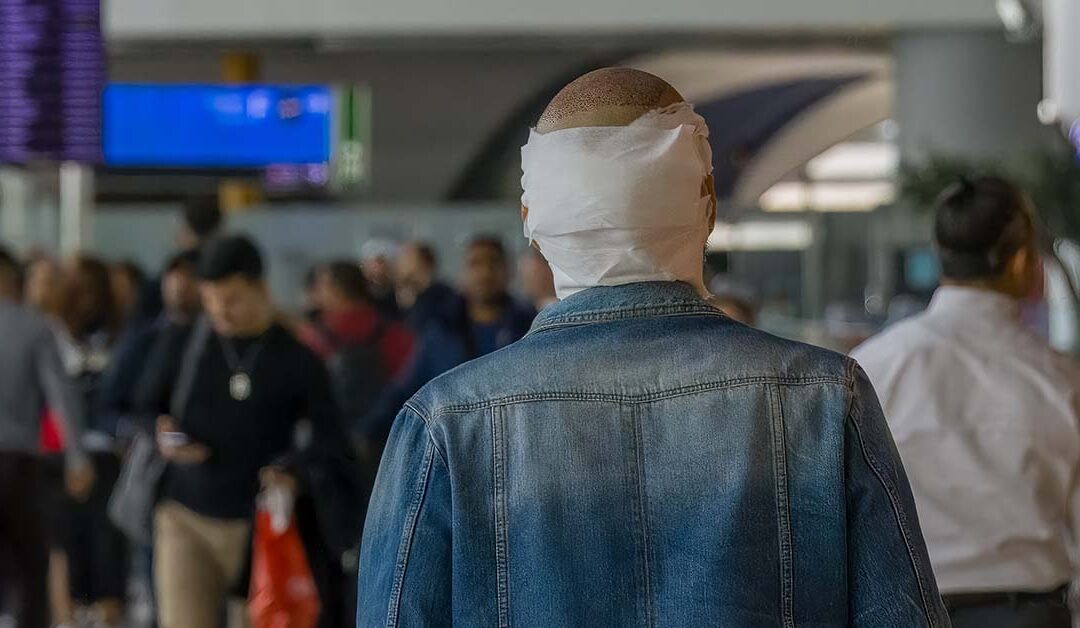Medical tourism is the practice of traveling to another country to obtain medical treatment. Oftentimes the reason people seek out these procedures is that they are more affordable than in their home countries, but those curious about medical tourism need to do extra research and take into account things they wouldn’t when working with a local doctor.
One of the most popular procedures people travel to other countries for is hair transplants. Turkey performs more than 2,000 hair transplants a day, and its health ministry expects more than two million tourists to visit this year for various procedures including plastic surgery, dental, and others.
Countries like Türkiye, India, and Thailand offer potential patients reportedly high-quality services for a fraction of what it would cost in western countries. Would-be patients are warned, however, to conduct proper research into the credentials of the clinics and surgeons, and to be sure they understand the standards and regulations of medical care in their destination country.
Why Is Medical Tourism a Problem?
When considering the potential cost savings, patients considering medical tourism should understand the potential problems that may be associated with traveling for surgery. Because patients often treat it as part of a vacation (or do not consider cosmetic surgery to be “real surgery”), there can be a lack of follow-up care. That can lead to a higher risk of complications… which only leads to costly treatment back at home.
What Risks Are Associated With Medical Tourism?
The International Society of Hair Restoration warns prospective patients of a growing trend of unqualified technicians – instead of trained physicians – performing hair restoration surgeries. The ISHRS urges consumers to thoroughly research the medical facility and hair restoration physicians as there are increasing reports of people receiving poorly done hair transplants while abroad.
“We’re finding that some patients seeking hair transplants abroad are being lured by a doctor’s credentials, but then there’s a classic ‘bait and switch’ model happening where the actual surgery is being performed by a technician who is not licensed to perform surgery. This is a dangerous practice that places patients at serious risk,” said Sharon A. Keene, MD, FISHRS (Tucson, Ariz.), member of the ISHRS Executive Committee.
Additionally, there is a growing industry of black-market hair transplant clinics who can put unsuspecting patients at risk of receiving unnecessary or improperly done surgeries. The sanitary standards of some countries are also not up to the same level as in Western Europe or the United States.
What Are the Ethical Issues Associated With Medical Tourism?
There is an ethical concern that medical tourism might actually be creating a two-tiered medical system where high-end care is reserved only for wealthy foreigners willing to pay while any resources left over go to the local citizenry. Also, there are issues where language barriers create impediments to informed consent. A patient is required to be fully informed about aspects of their treatment, including its risks and potential alternatives.
In 2007 there were an estimated 750,000 Americans who went abroad for health care, and roughly 1.5 million in 2008. U.S. healthcare providers are reported to have lost potentially billions of dollars in lost revenue due to medical tourism.
There is also the big question of who is responsible in the event of a botched surgery or any needed follow-up care. There are some specialized brokers who help to arrange the surgery, travel and hotel, and sometimes contracts are provided for a doctor or hospital back home… but it is very inconsistent.
LA FUE Hair NYC Can Help Diagnose & Treat Your Hair Loss
When you visit us at LA FUE Hair NY, we can help you with a treatment plan that suits your needs. Are you ready to get your hair back? The highly trained team at LA FUE Hair NY are here to help you on your journey. Contact us today to schedule your complimentary consultation.


